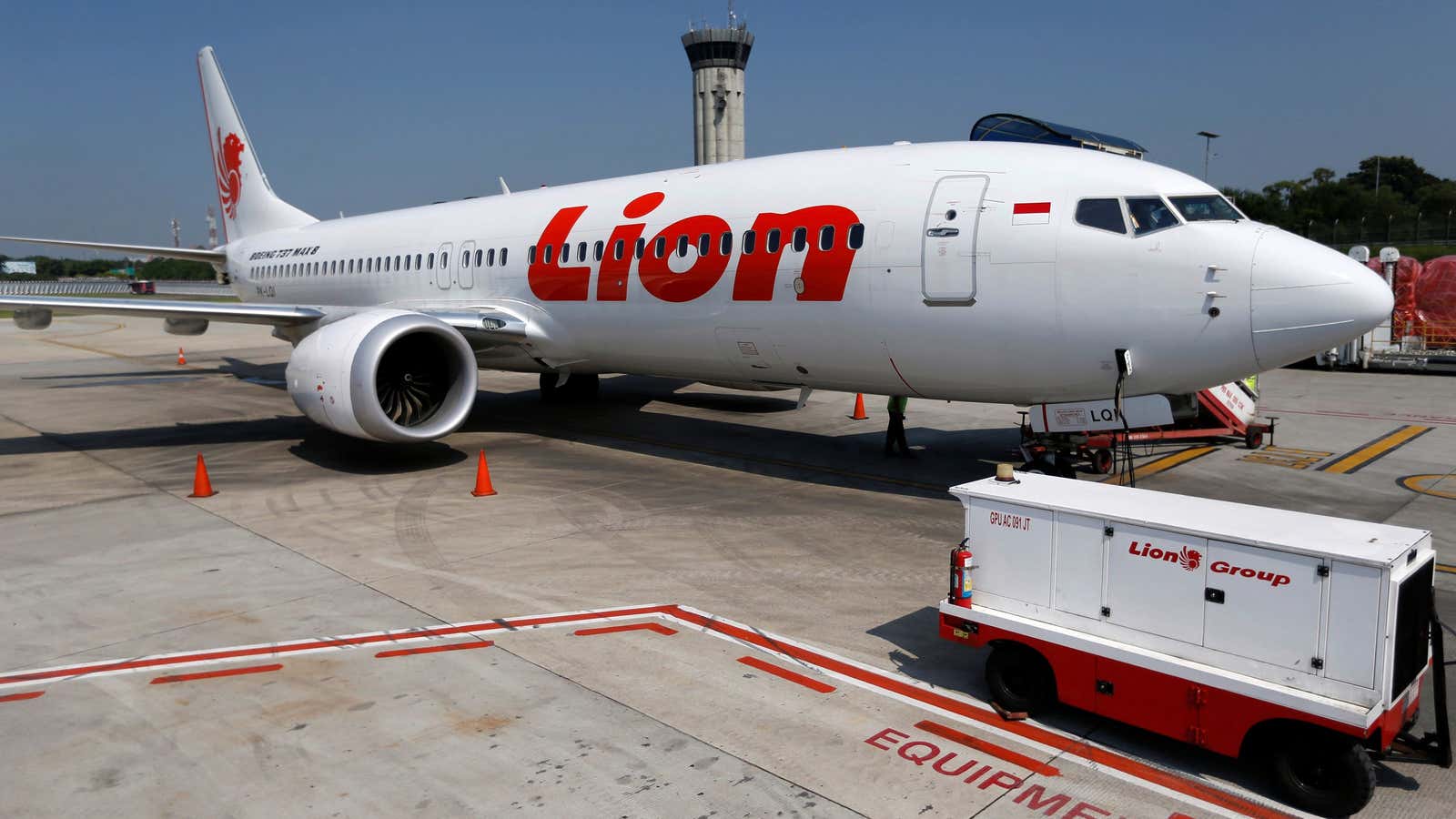The French widow of a man killed in the Ethiopian Airlines 737 Max crash is seeking $276 million in damages from Boeing, with her lawyer arguing that the plane manufacturer “acted recklessly, willfully and with conscious disregard to the safety of its passengers.”
Nadege Dubois-Seex—whose husband, Jonathan, died in the March crash—filed the suit in Chicago, where Boeing is headquartered. In total, more than 30 suits have been filed by the families of those killed in the Ethiopian Airlines and Lion Air crashes.
Nearly 350 victims were killed in the crashes. In October, Lion Air flight 610 crashed into the Java Sea 12 minutes after takeoff from Jakarta, Indonesia, killing 189 passengers and crew. Then, in March, Ethiopian Airlines Flight 302 crashed six minutes after take-off near the Ethiopian town of Bishoftu. All 157 aboard died. Both accidents remain under investigation, with the planes’ anti-stall systems a focal point.
Suits are strongest in the US
If past experience is a guide, US aviation-law specialist Mike Danko told Quartz, virtually every family member of every victim killed in the two crashes may eventually file suits against Boeing. Efforts to seek compensation will depend entirely on whether the cases remain in the US or are repatriated overseas, the California-based attorney said: “If those cases are transferred, then they become worthless.”
The US legal system compensates people for the loss of life to a greatly different standard than in other countries, Danko said. If the cases are moved overseas, the amount of compensation that could be sought is much, much less. “The cases cannot be economically pursued, and essentially they’re not worth bringing.”
If the cases are allowed to remain in the US, it will be “very difficult for Boeing,” who may face damages well above and beyond normal compensatory measures. “Seldom has there been a case where there appears on the surface that there has been such a disregard for the lives of flying customers,” Danko said. Hefty damages imposed by a judge may be “designed to punish Boeing and make an example of them so that other customers don’t suffer the same fate.”
Boeing has not commented on the suits. In a May 16 statement, the company said it maintained a “commitment to our values, including safety, quality and integrity, because we know lives depend on what we do.” Some US aviation specialists now believe a bird strike may have played a role in the Ethiopia crash.
How lawsuits can travel
It comes down to the legal doctrine known as forum non conveniens, which allows judges to relocate cases to the country where the crash occurred, rather than where related businesses involved are located. On his blog, Danko lays out five important questions that can decide where a suit is tried:
- Which country would be most convenient for the witnesses?
- In which country would it be easier to access the relevant evidence?
- Where would it be easiest to subpoena unwilling witnesses?
- In which country would it be the least costly to have witnesses attend trial?
- In which country is it easiest to view the crash site, if necessary?
In this instance, Danko says, he believes there are good grounds for cases to be relocated overseas.
“The wreckage is not here, the family members are not here, the flight data recorder—none of that is in the US,” he said. In the event that the suit is moved, the families may be left with nothing.
Looking for more in-depth coverage of Boeing? Sign up for a free trial of Quartz membership, and read our premium field guide on Boeing’s current crisis.
